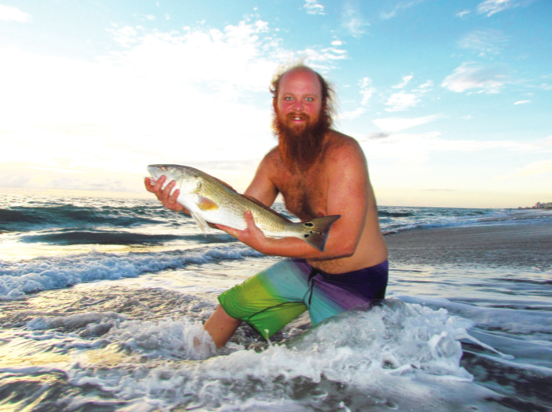The Atlantic’s roar greets me as I step out our front door and start toward the beach to check out the surf conditions. A series of medium-to- mild cold fronts have helped drop water temperatures into the mid-to-upper sixties along the entire 160 miles of the Indian River Lagoon Coast. These cooler temperatures have stimulated the southbound migration of a host of species, including pompano, whiting, black drum, and flounder that prefer temperate conditions over our normally semi-tropical weather.
Referring back to my fishing journals, I see how distinct weather patterns influence our winter surf fishing success in both positive and negative ways. For instance, pompano fishing in the surf is best when water temperatures are in the sixties (sixty-seven degrees is optimum), and typically the bigger fish are more abundant and they feed closer to shore. However, when the water temperatures rise into the seventies or drop into the low sixties, or even the high fifties, the larger fish move further south or into deeper water, and we’ll see an increase in the number of undersized pompano as a result. For this reason, cooler years tend to be more productive than the years when we experience extremes. I’m comfortable with this information because of the data I’ve collected for more than twenty years.
Even with all of this great information, I’d like to point out that surf fishing can vary greatly from one tide cycle to the next. So, let’s look at the variables that can come into play during your next surf fishing trip.
The size of the waves, the clarity of the water and the pull of the current will make a difference in your success. Moon phase and tide always come into play. The amount of sargassum or other grass and debris on the beach or in the water affects your ability to catch fish, as does the availability of bait (a wise surf angler has an eye out for sand fleas in the swash or for finger mullet swimming by). These are only a few of the elements that can come into play.
In my next installment, I’ll address how you can improve your surf fishing by better recognizing, predicting and preparing to address these factors.
To learn more about catching, why not plan to attend one of our upcoming fishing workshops? Please contact Rodney Smith at irlcoast@gmail.com.
[easy-social-share]

